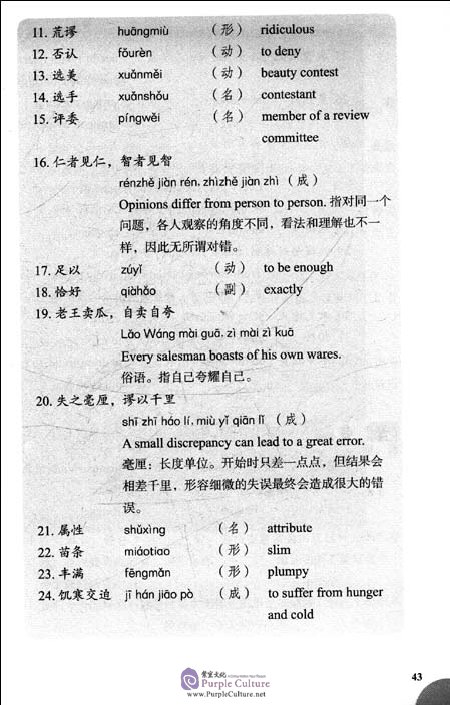The Conversational Chinese series adopts a step-by-step and rather fast way to teach students without any Chinese learning experience to speak Chinese. Conversational Chinese for Debate is the sixth volume in the series, with its 18 lessons equally divided into two parts. Each of the nine lessons in the first part gives a topic for the two sides (pro and con) to debate on. Both sides are supposed to have clear arguments and support the arguments with convincing facts and reasons, and are encouraged to make appropriate use of idioms and proverbs. The nine lessons in the second part encourages the debaters to give more of their own ideas rather than totally relying on the materials given in the lessons so as to further improve their use of the language.
上编
第1课 男人累还是女人累
第2课 电视利大于弊还是弊大于利
第3课 城市里要不要限制私家车
第4课 该不该禁止一次性用品
第5课 美是客观存在还是主观感觉
第6课 “养儿防老”好还是“以房养老”好
第7课 公共场所是否应该禁烟
第8课 是不是金钱越多越自由
第9课 艾滋病是医学问题还是社会问题
上编词汇表
下编
第1课 交友多好还是少好
第2课 网恋究竟好不好
第3课 代沟能否消除
第4课 成绩是评价学生好坏的主要依据吗
第5课 现代社会需要专才还是通才
第6课 “知识就是力量”对不对
第7课 该不该以成败论英雄
第8课 社会秩序的维系主要靠法律还是靠道德
第9课 应不应该施舍乞丐
下编词汇表
